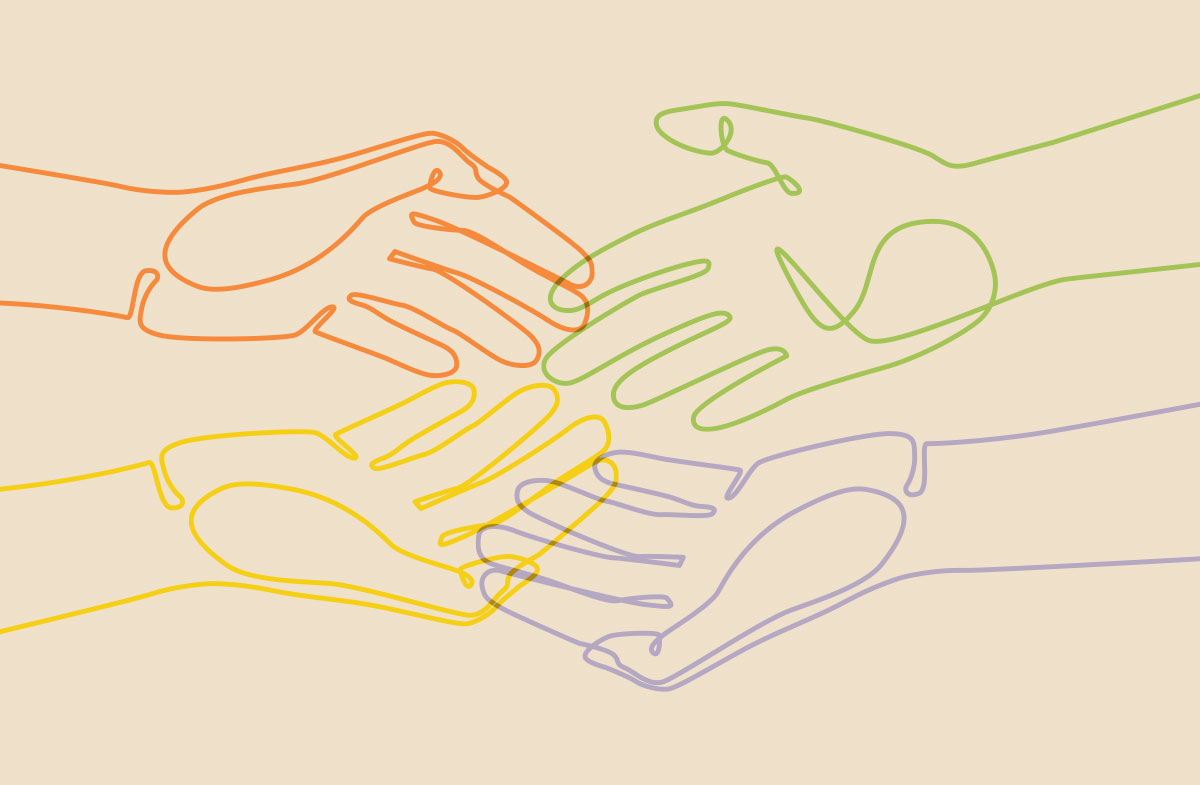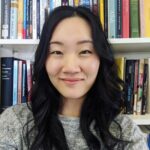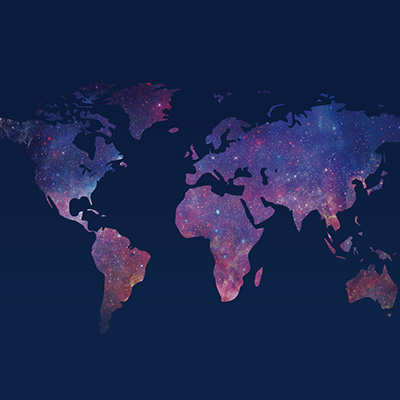An evangelical businesswoman and an Orthodox archbishop are leading a global initiative bringing together evangelical and Orthodox Christians around the mission of God.
The Third Lausanne Congress on World Evangelization in Cape Town in 2010 brought together over 4,000 evangelical Christian leaders from nearly every country in the world. But alongside these leaders were a handful of observers, including Archbishop Angaelos, then Bishop Angaelos, of the Coptic Orthodox Church in the UK.
Leslie Doll, who with husband Bob Doll were among the generous partners who made Cape Town 2010 possible, was walking through the hotel lobby one morning at the congress when she saw the archbishop, dressed head to toe in black, sitting alone at a table. Prompted by the Holy Spirit, she went up and said hello. He invited her to sit down and have a cup of coffee.
The archbishop was at the congress to learn more about evangelicals and their vision for God’s mission. Leslie realized that she knew very little about the Orthodox Church and began to ask him questions. She learned about the Orthodox’s high view of Scripture and the Trinity, and their belief in the inerrancy of the Bible. She learned that the Nicene Creed originated in the Orthodox community back in the 300s AD with Athanasius, a Copt like Archbishop Angaelos.
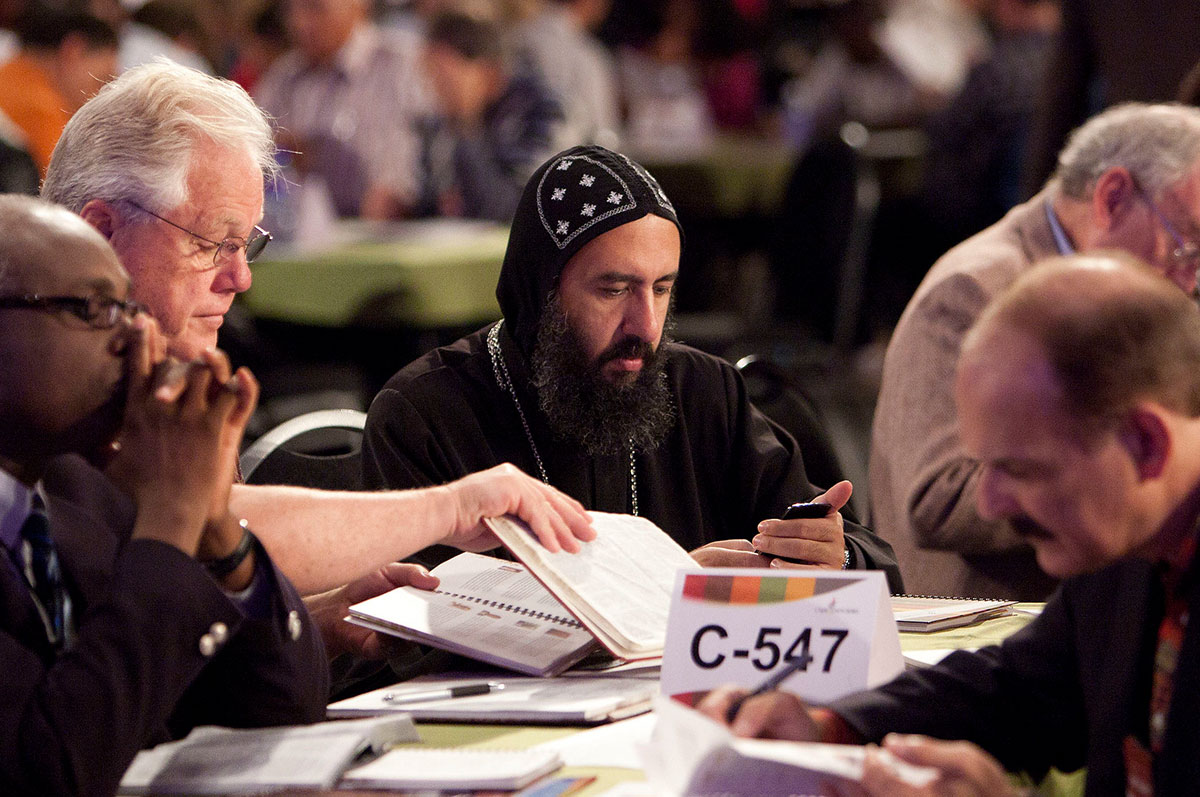
Bishop Angaelos (now Archbishop) of the Coptic Orthodox Church in the UK participates in a table discussion group at Cape Town 2010.
‘I began to see that their history is my history,’ says Leslie.
They had lunch and dinner together the next day, with other participants and leaders of the congress. It was an unexpectedly sweet and rich time of fellowship for all.
But the following day, a plenary speaker at the congress gave a presentation on unreached people groups, during which he suggested that the whole Orthodox Church is an unreached people group in need of the gospel. Leslie was disappointed at this uninformed statement, as was the Archbishop, who also attended the session.
They realized that evangelicals and Orthodox know close to nothing about each other, and this lack of knowledge and relationship is harming the global church. From this realization, an initiative was born.
ARTICLE
A Movement for the World’s Cities
A pastor, a marketplace leader, and a non-profit expert accelerate the gospel in New York City.
The Lausanne-Orthodox Initiative
Eighteen months after Cape Town 2010, Archbishop Angaelos and Leslie Doll officially co-founded the Lausanne-Orthodox Initiative (LOI), with a board consisting of half evangelicals and half Orthodox. The goal of the initiative was to learn from one another, appreciate one another, and enrich each other, acknowledging that there’s one Shepherd of one flock.
At first, there were hints of resistance from within the Lausanne Movement. ‘Over the last 10 years as Lausanne has grown, however, there’s developed an understanding that we don’t want to compromise our theology, but God’s flock is bigger than we sometimes want to acknowledge,’ shares Leslie. ‘And it’s worthwhile for the sake of Christ and the glory of God to embrace His church and work together for the mission of God.’
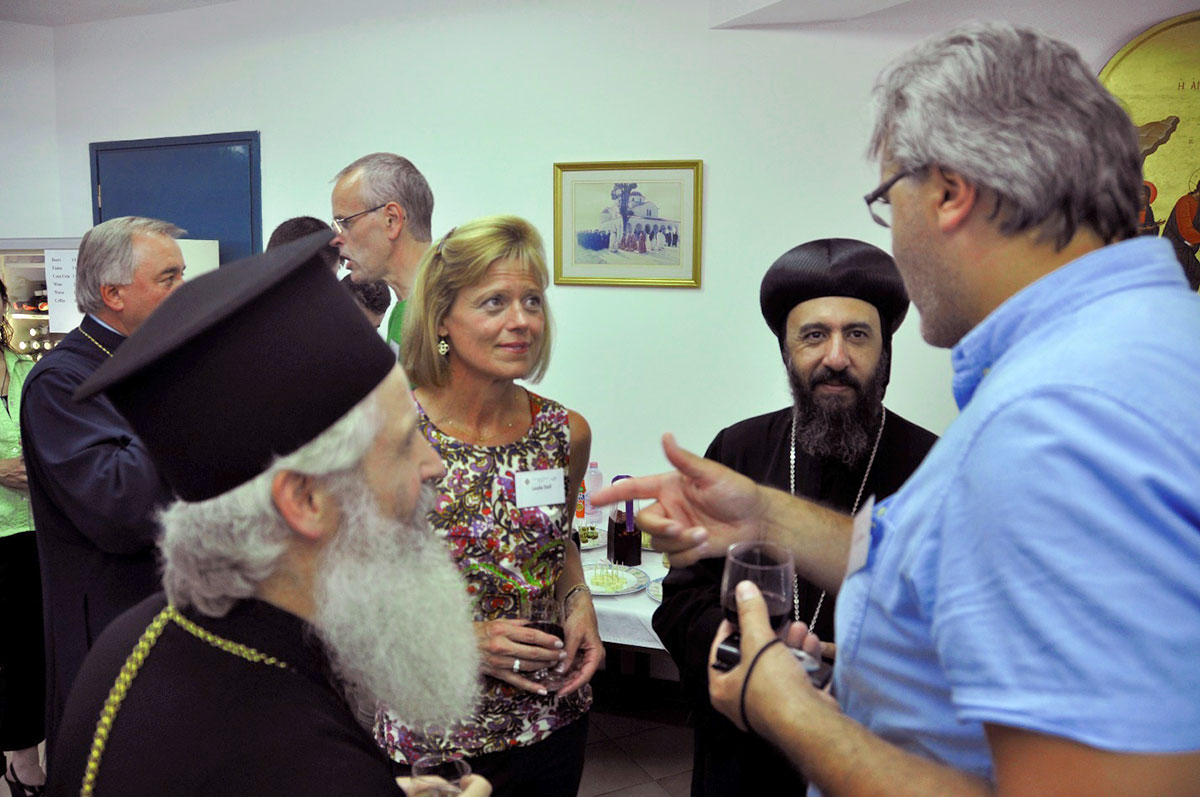
Leslie Doll (center left) with Archbishop Angaelos (center right).
This distinctly missional purpose sets LOI apart from other ecumenical organizations and conferences that seek mainly to present ideas. Over the years, they have engaged over 600 participants around the world through regional and global conferences, all in the name of making Christ known. LOI gatherings have explored topics like the mission of God, theological education, Scripture engagement, and Christian witness from Orthodox and evangelical perspectives.
Regarding Christian witness, Leslie explains that the Orthodox don’t always do evangelism like evangelicals do. Instead, their concept of mission is often invitational, focused around their worship services. ‘They want people to come visit their church and hear the Word of God,’ says Leslie.
‘It’s about the mystery of God moving our hearts toward him, whereas we evangelicals often emphasize our role in telling people the gospel. We all believe in the mystery of the Holy Spirit and that salvation belongs to God. We may be a vehicle, but it’s God who draws us to himself. Orthodox would say the same thing, it’s just the method is different.’
‘We need to have an appreciation for and a trust in the ministry of God that he uses different people in different ways at different times,’ she continues. ‘We can’t compromise on theology, but if we can agree on the Nicene Creed, there’s a lot we have in common.’
During Covid lockdowns, LOI held a series of webinars that shared the testimonies of believers who have chosen to journey between evangelical and Orthodox traditions. Among those who shared during the first webinar is Dr Myrto Theocharous, professor of Hebrew and Old Testament at the Greek Bible College in Athens and an LOI board member.
Myrto was raised in Cyprus in a mixed-tradition household where her mother was evangelical and her father was Greek Orthodox. Today she is a committed evangelical Christian, but with much appreciation for and significant enrichment from the Orthodox tradition.
She says one thing the Orthodox tradition brought to her evangelical faith is a sense of continuity with the ancient church throughout the ages. ‘I feel like someone who was separated from her parents at birth, and this process [of learning more about the Orthodox tradition] has been a reunification,’ she says.

LOI members at evening prayers in the Syriac Orthodox Church in Salzburg during the 2022 Salzburg Consultation.
Continuing the metaphor, she shares that discovering historically Orthodox groups like the Desert Fathers and Mothers has been like learning to live in the same house again with newly found family members. The reunification has not been easy. ‘I feel more comfortable approaching the Church Fathers as a subject to study, rather than as my ancestral fathers. It’s hard to have that sense of kinship,’ says Myrto.
‘But I’m increasingly discovering how much debt I have to the fathers and mothers of the church. They are the ones who wrestled with the Scriptures, before I ever did, and they are the ones who negotiated the Christian identity amidst numerous alternatives and distortions of the gospel.
‘I’m realizing that without them I would not have a Bible to study. They are the ones who copied our Scriptures, who hid them and preserved them from destruction, who disseminated them in the world, and who did this at the cost of their lives.’
The Tensions Between Orthodox and Evangelicals
In countries like Russia and Albania, where the Orthodox Church is the majority expression of Christianity, the prevailing evangelical attitude has been one of ‘bringing the gospel to a land where it has never been before’.
‘When communism fell in Eastern Europe, there were many Christian missionaries who did not have any sense that Christianity has actually been there a really long time,’ says Leslie. ‘The first interactions were a posture of conquering rather than learning. As a result, there have been many hurts and issues in working together.’ These divisive interactions continue to this day. And on the other hand, the longstanding Orthodox and Catholic communities in places like Russia are often hostile toward evangelical churches, with fear of sheep-stealing and political power plays.
As an active leader of the Strategic Resource Group, an organization of Christian business people committed to the Great Commission in the Middle East, Leslie has often seen similar church-on-church conflicts in places like Iraq.
‘Often we assume the enemy to the gospel in places like Iraq are the Muslims, and that they are the cause of the most persecution of Christians,’ she says. ‘But we have found that in talking with people on the ground, the church against the church can be an even more powerful persecutor. There’s perceived and real power that people don’t want to give up. That has been eye-opening, to realize the extent of how differences within the body of Christ are affecting the witness of the church in such detrimental ways.’
‘It’s given us more energy to see that the global church needs to stand together in times such as this,’ says Leslie. ‘If we want to represent Jesus and win people to Christ, that witness of unity is quite important.’
ARTICLE
Give Your Church a Vision for the World
Our year-long prayer resource for churches will take you on a journey of how God is working in the world.
Next summer in Birmingham, UK, a consultation will be hosted to explore ministry to refugees in Europe and the UK, many of whom are Orthodox or non-Christians settling in communities where both churches are present. The gathering will explore questions like: How do we reach immigrants with the gospel? How do we integrate evangelicals and Orthodox into each other’s churches? What can churches do now to start preparing? How do churches deal with one another when some are welcoming and some are not? How do the churches cooperate in this ministry together?
LOI will also soon be sending a team of evangelicals and Orthodox to work together with children in Egypt. A delegation to Romania is also being planned, where LOI will host meetings with Orthodox and evangelicals, listening to them, understanding what the issues are, and if and how LOI can be a platform for reconciliation.
Referring to her and her husband Bob’s decision to become financial partners with the Lausanne Movement for Cape Town 2010, Leslie says, ‘That one act of obedience turned into interaction and engagement with the global church. We got not just a glimpse but a real working knowledge of the global church. The Cape Town Congress opened a world of what faith looks like.’
She continues, ‘It’s been a wonderful providential journey, from seeing that man I didn’t even know was Christian, to taking a step out of the boat. The mission of God meets each one of us with our small little parts to play. What a joy to be in this little part.’
Pray with Us
By Leslie Doll
Heavenly Father, thank you that you are building your kingdom your way and that you are using both evangelicals and Orthodox to spread the good news of salvation in Jesus. We ask, that in your grace, relationships would be healed, and together we could go forth in mission acknowledging the one shepherd of the flock. In this way Lord, may you bring many from darkness to light, and may you unify your church, for your glory.
